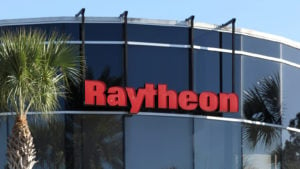They say March comes in like a lion and goes out like a lamb. For the markets, it’s looking like it’s coming in as a bull. But the bull is getting a bit erratic given the big move in fuel prices and the wild action in the bond market recently.
The U.S. dollar index is near its 52-week lows, and that means rates on bonds have risen significantly. That’s going to change the real estate market, and that will have spillover effects in portfolio holdings. We’ve also already seen Big Tech get hit with selling.
Plus, the Federal Reserve has said it will not intervene at this point and isn’t worried about inflation, so investors will start to make different decisions in this environment.
What it means for the individual investor is that it’s time to weed out the weak and vulnerable from your portfolio now.
These seven stocks to sell for March are a very good start:
- Biogen (NASDAQ:BIIB)
- Boston Scientific (NYSE:BSX)
- Duke Energy (NYSE:DUK)
- GlaxoSmithKline (NYSE:GSK)
- Las Vegas Sands (NYSE:LVS)
- Raytheon (NYSE:RTX)
- AT&T (NYSE:T)
Stocks to Sell for March: Biogen (BIIB)

A couple weeks ago, a slew of drug companies announced earnings. All showed strong Q4 earnings and revenue. But BIIB came in mixed, with weak earnings but good revenue.
But looking back isn’t what the markets or the analysts really care about. The markets are forward-looking. And BIIB’s guidance wasn’t very optimistic.
As a leader in neurological and neurodegenerative diseases, it wasn’t a part of the wild ride some companies had in the race to a vaccine. But even that hype has left the market, so weak guidance in a wild market like this is going to get your stock punished.
There’s no point holding and hoping when there could be more downside to come, as sector rotation is sure to be the story of the next few months. This is the prime reason Biogen made the list of stocks to sell for March.
BIIB is up 11.6% year-to-date, yet in the past 12 months it’s still in the red, down 15.7%.
Boston Scientific (BSX)

In late January, BSX announced that it was buying a leader in the ambulatory cardiography space, Preventice Solutions, for $925 million. It already owns a 22% stake, so when all is said and done, the deal will cost around $720 million.
And while the space for implantable cardiac monitoring equipment is growing a good clip, it’s a $2 billion market, and BSX already had a nice piece of that market with its own equipment as well as its investment in Preventice.
But even with that news and some new buy recommendations from analysts, the stock has been treading water for the past 12 months.
Granted, it’s a major medical-device manufacturer that sells more than 13,000 products in 100-plus countries. But this isn’t the kind of stock that’s going to make much of a move any time soon.
Duke Energy (DUK)

You would think if there were any energy company stocks to sell in March, it would be Texas-based utilities. But we’re not here to state the obvious, and that cow has already left the barn. I want you to pick stocks that you might not otherwise think are in trouble.
DUK is a major East Coast utility with operations in the Carolinas, Ohio, Kentucky and Puerto Rico. It has natural gas distribution operations in a few other states as well.
It’s an old school utility that has been a leader in clean energy, but it also sits in the heart of coal country and has some legacy issues to deal with in converting to cleaner operations. Last year, there was talk of another big renewable energy company looking to buy DUK, but nothing came of that. Although, that remains a possibility for some of these utilities that have soared in the past year.
DUK’s recent earnings were mixed, and revenue was down year-over-year, largely due to the fact that its commercial and industrial customers were hamstrung by the pandemic.
The stock is down 9% in the past three months and still trades at a price-to-earnings (P/E) ratio of 51.7, which is massive for a utility. Overpriced and underperforming is not a good combination, making this an easy pick for this list of stocks to sell for March.
GlaxoSmithKline (GSK)

With a market capitalization of $84 billion, GSK is certainly in the Big Pharma club. Like many of its peers, it jumped into the vaccine race, but its initial vaccine had a lowered effectiveness in the elderly, and that pushed its development back a few steps.
It’s now revamping its position with a new joint venture, and it has another to develop a vaccine for the Covid-19 variants that are popping up around the world.
But GSK is doing a lot more than vaccine work. Some of its drugs have become go-to antibiotics, cancer treatments and HIV/AIDs drugs, and it even developed the first vaccine for malaria.
That hasn’t helped the stock, however. In the past month, the stock is down 13.5%, and it’s down nearly 179% in the past 52 weeks. Its 6.1% dividend won’t put a dent in those numbers.
Las Vegas Sands (LVS)

If you have ever been to Las Vegas, you know how massive the properties are out there. On the big, flat desert, they lose their scale until you go inside and realize how massive these structures are. Just to keep them running costs huge sums.
So, when they sit nearly dormant for months on end, keeping the lights on is a real challenge. LVS only has two resorts in Vegas at this point, but it has built a large number in Macau and Singapore.
But during the pandemic these operations were also affected. And recently the high-profile CEO and founder Sheldon Adelson died. While management has been well established, a shift in leadership always brings some kind of change.
The sector has been doing well as pandemic numbers improve, but the economy is going to have to improve along with it, and we’re still weeks away from a new stimulus deal. Your best bet here is to count LVS as one of the stocks to sell for March.
Raytheon (RTX)

It’s hard to believe that a defense company would make a list of stocks to sell for March. The defense sector is one of the most consistently funded departments in the government. And budgets have been rising year after year.
But the U.S. has now reached a point of significant debt, as deficit spending has gone through the roof in recent years. Add in the multi-trillion-dollar stimulus packages for the pandemic, and the numbers have gone parabolic.
That means cuts will have to come from somewhere, and the biggest pot of money is in defense. RTX and its peers aren’t going to starve. But they’re not going to thrive, either. Even our adversaries are struggling economically, so the thought of significant military engagements aren’t too concerning in the near future.
What’s more, its Pratt and Whitney aircraft engine division may have some troubles after the recent incidents with their engines coming apart in-flight. The risks outweigh the opportunities here.
AT&T (T)

For months now, I’ve been ringing the alarm on this stock. Yes, this major telecom company is delivering a tantalizing 7.1% dividend, but the stock is down 24% in the past 12 months. The math is pretty easy, and it doesn’t work out in investors’ favor.
Some will argue that it’s one of America’s most iconic brands and that it will endure as it has for decades.
But there are many iconic brands that are mere shadows of themselves because they thought they were bigger than the markets and had such power that they could weather any storm.
We are living in a very disruptive age, and any sense of comfort derived from a legacy brand can be dangerous. Innovation has always been the hallmark of telecom companies. Even At&T understood the value of its Bell Labs, at least until 1996 when it spun it off.
The danger for AT&T is that it’s no longer an innovator. And investors are picking up on this. It’s still a massive company and isn’t going to disappear, but it shouldn’t be a big investment.
On the date of publication, Louis Navellier had no positions in any of the stocks in this article. Louis Navellier did not have (either directly or indirectly) any other positions in the securities mentioned in this article.
The InvestorPlace Research Staff member primarily responsible for this article did not hold (either directly or indirectly) any positions in the securities mentioned in this article.
Louis Navellier had an unconventional start, as a grad student who accidentally built a market-beating stock system — with returns rivaling even Warren Buffett. In his latest feat, Louis discovered the “Master Key” to profiting from the biggest tech revolution of this (or any) generation.
